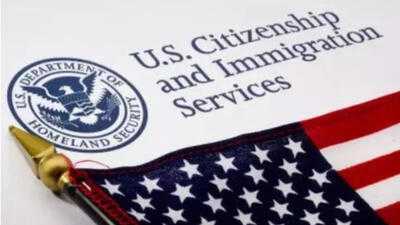US State Department sued by hundreds over revoked visas: Students fight to reclaim their right to travel
More than 200 international students affected by the Trump administration’s immigration crackdown are suing the US State Department to have their visas reinstated, court documents reviewed by The Hill show. While federal judges across dozens of cases forced the government to restore students’ records in the Student Exchange Visitor Information System (SEVIS), many continue to face visa denials that prevent international travel. Some students who left the US after their visas were revoked have had to reapply, only to be denied, effectively barring them from returning despite being legally allowed to study in the country.
 Two federal lawsuits filed against the State Department Immigration attorneys representing 217 students have filed two separate federal lawsuits in recent months challenging visa terminations by Secretary of State Marco Rubio. The first, filed in early August by Steven Brown and Brad Banias on behalf of 59 students, also names Department of Homeland Security Secretary Kristi Noem and Todd Lyons, acting director of ICE . Lawyers plan to seek class action status.
Two federal lawsuits filed against the State Department Immigration attorneys representing 217 students have filed two separate federal lawsuits in recent months challenging visa terminations by Secretary of State Marco Rubio. The first, filed in early August by Steven Brown and Brad Banias on behalf of 59 students, also names Department of Homeland Security Secretary Kristi Noem and Todd Lyons, acting director of ICE . Lawyers plan to seek class action status.
The second lawsuit, filed in September by IMMpact Litigation—a coalition of independent immigration law firms—represents 158 students and names only Rubio. Both lawsuits argue that many visa revocations followed automatic SEVIS terminations that had been blocked by courts, rendering the revocations unlawful.
Student Criminal Alien Initiative under TrumpLawyers say the revocations were carried out programmatically under the DHS’s so-called “Student Criminal Alien Initiative,” bypassing the individualised review typically required for terminating visas. Court testimony shows that ICE ran 1.3 million foreign students’ names through federal criminal databases. Students flagged in the system often had both their SEVIS records and visas revoked.
The State Department confirmed it revoked more than 6,000 student visas since Trump took office. Department officials defended the program as a measure of national security, emphasising that visa revocations target individuals who violate US law or pose threats to citizens.
Confusion over SEVIS versus visa statusLegal experts note that public misunderstanding of the difference between SEVIS records and visas has compounded student challenges. While SEVIS determines whether a student can remain in the US, a visa allows travel in and out of the country. Many students whose SEVIS records were restored have yet to have their visas reinstated, leaving them unable to visit family, attend special events, or study abroad. Greg Siskind, founder of visalaw.com, said it was surprising that the State Department did not automatically reinstate visas after SEVIS records were restored.
Impact on students and familiesThe IMMpact Litigation complaint outlines the severe hardships students face, including disrupted career plans, financial loss, and emotional distress. Attorneys emphasise that visa revocations prevent students from participating in critical family and personal milestones. Charles Kuck, who represents some of the students, described situations where students could not visit a sick parent, attend a sibling’s wedding, or take part in study abroad programs.
Legal battles likely to take monthsWhile SEVIS status restorations moved quickly after courts recognised irreparable harm, visa reinstatement cases are expected to take longer. Lawyers estimate resolution could take six months to a year, further delayed by the ongoing federal government shutdown, which halts civil litigation against federal agencies.
Attorneys for the plaintiffs are seeking full visa reinstatement. Kuck summarised the stakes: “For many international students, a revoked visa is a barrier to living a normal life in the US while pursuing their education.”
The second lawsuit, filed in September by IMMpact Litigation—a coalition of independent immigration law firms—represents 158 students and names only Rubio. Both lawsuits argue that many visa revocations followed automatic SEVIS terminations that had been blocked by courts, rendering the revocations unlawful.
Student Criminal Alien Initiative under TrumpLawyers say the revocations were carried out programmatically under the DHS’s so-called “Student Criminal Alien Initiative,” bypassing the individualised review typically required for terminating visas. Court testimony shows that ICE ran 1.3 million foreign students’ names through federal criminal databases. Students flagged in the system often had both their SEVIS records and visas revoked.
The State Department confirmed it revoked more than 6,000 student visas since Trump took office. Department officials defended the program as a measure of national security, emphasising that visa revocations target individuals who violate US law or pose threats to citizens.
Confusion over SEVIS versus visa statusLegal experts note that public misunderstanding of the difference between SEVIS records and visas has compounded student challenges. While SEVIS determines whether a student can remain in the US, a visa allows travel in and out of the country. Many students whose SEVIS records were restored have yet to have their visas reinstated, leaving them unable to visit family, attend special events, or study abroad. Greg Siskind, founder of visalaw.com, said it was surprising that the State Department did not automatically reinstate visas after SEVIS records were restored.
Attorneys for the plaintiffs are seeking full visa reinstatement. Kuck summarised the stakes: “For many international students, a revoked visa is a barrier to living a normal life in the US while pursuing their education.”
Next Story